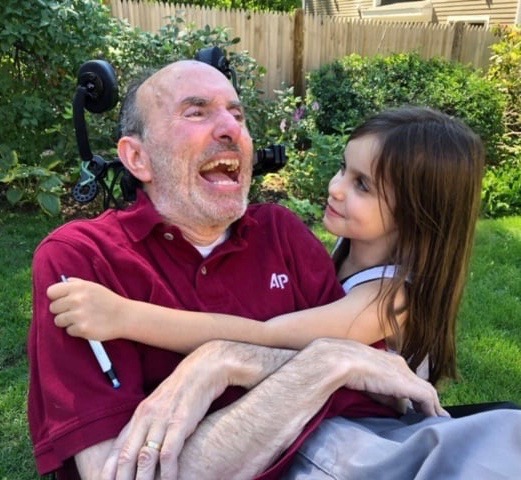NOVEMBER 21, 2020 – Out of an unhappy event—the death of my brother-in-law Dean (See 10/26 post)—in these unhappy times, emerged the most uplifting experience since the onset of the pandemic.
Yesterday, Dean’s oldest daughter, Hillary, arranged for a Zoom meeting among family and friends to share remembrances. Some of the people I knew; most I’d never met. By the end of the session, I felt a special bond with everyone who participated.
Music supplemented words. On the piano a relative played one of Dean’s favorite songs, You’re so Cool. A friend who’s a professional colleague of my sister played three Scottish dance tunes on the violin—a nod to Dean’s own affinity for Scottish folk music, something about him I’d forgotten. At the end of the program, however, came le piece musical de resistance.
A professional clarinetist friend had uncovered an old recording of the Portland (Maine) Symphony performing Rachmaninoff’s Symphony No. 2—known to clarinetists as “Rocky II” for its famous, lengthy clarinet solo in the third movement—with Dean, as principal clarinetist, playing the solo. The recording formed the “soundtrack” to a slide show of photos of Dean that closed out the Zoom session. Tears flowed.
“Rocky II” was in Dean’s “pre-tax” life. The onset of MS in the late 1980s ended his musical career. He went back to school, became a CPA, wound up at a Big Eight accounting firm, and became a star—for 25 years—before his progressing disability forced him into early retirement. Homebound in his wheelchair, Dean turned to a third “career”: great literature. Among the speakers on yesterday’s Zoom call was another friend, a retired English teacher and writer, who’d helped Dean develop a reading list of classic world literature and later tutored him through a reading of every play by Shakespeare—not once but twice!
We heard the most poignant stories about Dean’s abiding friendship, deep empathy, extraordinary intellectual curiosity, and acceptance of total disability without ever uttering a word of complaint. But above all, we heard about Dean’s sense of humor.
It was noted that Dean’s best friend, Bill Wiley, who’d died suddenly last June, was also blessed with a sense of humor. While students at New England Conservatory and later as members of the Portland Symphony, Dean and Bill had been roommates. They were always engaged in comedic shenanigans. Although many people thought Bill was the funniest person they’d ever met, Bill himself had divulged, we were told, that it was Dean who’d shown him how to be funny.
As one friend after another shared stories about Dean, I realized how significant we are to one another. The significance isn’t by way of the monuments we build but by the character we reveal in humor, empathy, curiosity about the world, and above all, our caring about others.
Dean built plenty of monuments with his intellect, but he will be forever remembered fondly, and lovingly, for his character; likewise, by association with Dean, every person in that Zoom session.
(Remember to subscribe to this blog and receive notifications of new posts by email.)
© 2020 by Eric Nilsson

2 Comments
Lovely, Eric. I, too, was so honored to attend the Zoom session. I’m going to share a thought I included in an e-mail to Hillary and Kristina earlier this morning: “It occurred to me, as I reflected on everyone’s stories, that Dean’s life could serve as a blueprint (a “Rhodes map”!) for how to make one’s way through the world: with humor; compassion and empathy for others; humility and grace in the face of adversity; a probing curiosity; and an abiding love for family and friends.”
So glad you could experience that amazing session, Jeanne. And yes, the “Rhodes map” is perfectly described. — Eric
Comments are closed.